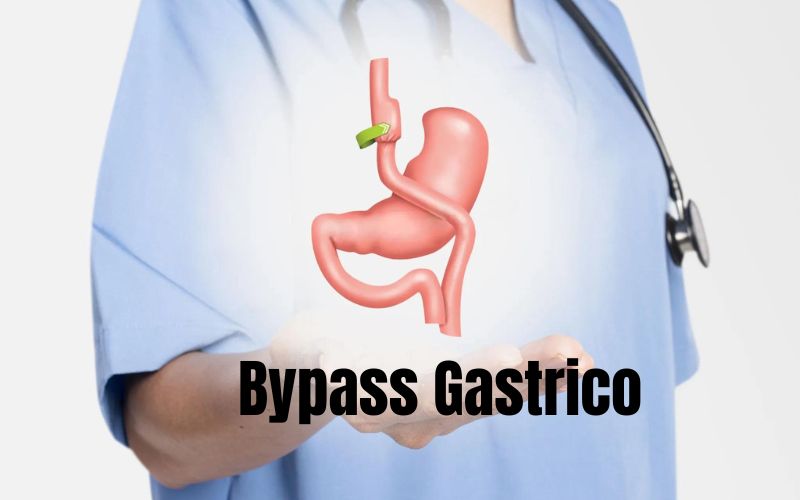After bariatric surgery, you may be sure of various prescription medications. Most likely, painkillers are incomplete within it. Your postoperative discomfort can be adequately cold with the help of these drugs. While some people experience only mild to moderate discomfort, others may experience more severe pain. To help you recover quickly, you should take painkillers recommended by your doctor.
By reading this article, you will better understand painkillers and other medications given after surgery. This article also warns about using certain medications that can adversely affect health and postoperative recovery. Drug absorption can be differentially affected by restrictive and malabsorptive bariatric surgery. Although bariatric surgery significantly reduces stomach acid, some medications require an acidic environment in the stomach to break down.
Table of Contents
Bypass Gastrico
Drug absorption may be affected differently by restrictive and malabsorptive bariatric surgery. Although bariatric surgery significantly reduces stomach acid, some medications require an acidic environment in the stomach to break down.
Pain after gastric bypass can be adequately skillful with opioid and non-opioid analgesics. It is crucial to prevent pain as soon as possible after surgery. Later in the postoperative period, pain becomes more difficult to control, which can delay recovery if the pain is not skillful early. So, the best pain reliever for gastric bypass patients is as follows.
Painkillers Without Opioids:
After bariatric surgery, acetaminophen often referred to as Tylenol, is a commonly recommended non-opioid pain reliever. Remember that paracetamol can damage the liver when used in high doses. Non-opioid medications are optional to treat mild to moderate pain.
Drugs For Treating Pain:
Opioids should only be secondhand to treat severe conditions that are not adequately cold with non-opioid pain relievers. Due to their negative consequences and addictive properties, opioids should be secondary in moderation. Opioids should always be used for the shortest time possible and at the lowest effective dose. Commonly prescribed opioids include hydrocodone, morphine, or oxycodone.
Medications To Avoid:
Avoid pain relievers after gastric bypass surgery. Until your doctor tells you otherwise, avoid pain relievers classified as nonsteroidal anti-inflammatory drugs (NSAIDs). NSAIDs like aspirin have been stable away to increase the risk of stomach ulcers—gastrointestinal perforations, and leaks. See your doctor if you can’t prevent them. Proton pump inhibitors can be secondhand to reduce stomach acid.
After surgery, stomach ulcers are more difficult to recognize and treat when to see your doctor: if you experience unusual bleeding or vomit containing blood if you experience side effects, if you continue to have severe pain after taking enough painkillers.
Which additional medications will I require following bariatric surgery?
You will likely resume taking medication for past chronic medical conditions after bariatric treatment. Due to decreased absorption in your digestive system following bariatric surgery, the doses of these medications may need to be adjusted. Your prescribing doctor will decide what to do in this case. Quick-release crushed or liquid medications should be used instead of extended-release medications to ensure absorption as soon as possible after surgery. Your bariatric team may prescribe this method of administration if you can break a tablet or open a capsule. You may be prescribed several long-term medications after surgery.
The Following Medications Need Special Attention.
The Blocker of The Proton Pump:
Proton pump inhibitor antacids are optional for prevention. Based on their history of ulcers, some people may be encouraged to continue using it a year after bariatric surgery. A PPI is something like omeprazole. They help prevent stomach ulcers by reducing the amount of acid in the stomach and small intestine. Bariatric surgery patients may be at risk of developing ulcers.
Acid Bile:
A bile acid known as ursodiol is agreed to prevent gallbladder problems. Gallstones do not develop due to this medicine. Significant weight loss after bariatric surgery has the unwanted side effect of potentially causing gallstones.
Birth Prevention:
Bariatric surgery is proven to increase fertility. Effective contraception is necessary for women for up to two years after bariatric surgery. Nutrient deficiencies are likely to affect both you and your child. Complications in early pregnancy after bariatric surgery can lead to premature births, which are small for babies of gestational age, and lead to developmental disabilities.
Interventions Without Pharmacology:
Early mobility is crucial to speed up the healing process after surgery. Light exercise and getting out of bed can help you focus less on pain and improve your mood when medically appropriate and recommended by your doctor. After surgery, the diet should be nutritious and balanced, including protein at every meal if you find it challenging to get enough protein every day.
Also read: Beauty Cream Remove Dead Cell
Also read: 6 Months Hair Growth







